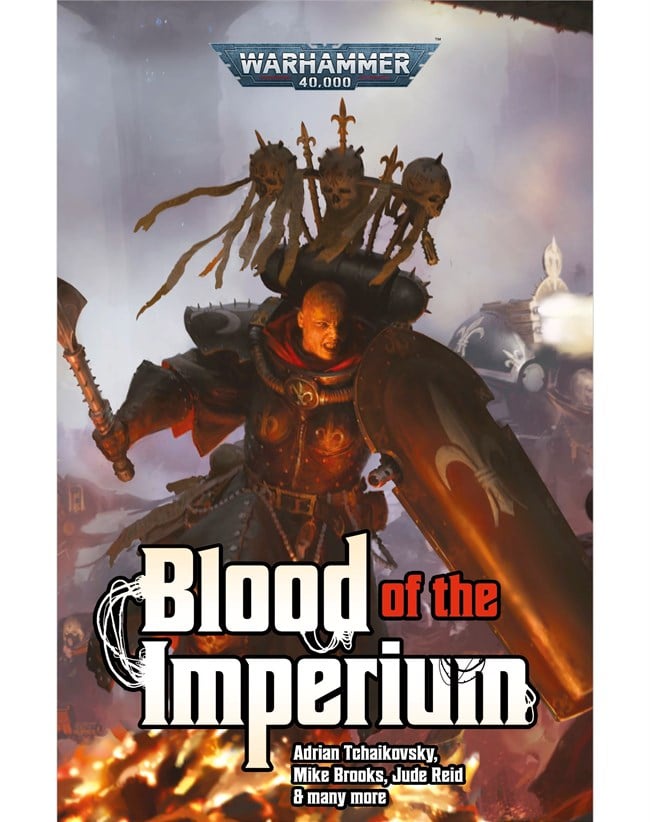Before the era of digital music, one of my favorite things to do was to make mix tapes. The best of these were more than just collections of good songs, but rather each song played its part in helping craft a full experience. Tempo and tone shifted from one song to the next in a way that flowed with purpose and intent, taking the listener on a journey. Each song I chose to include not only needed to stand on its own, but also contribute something to the whole.
In a way, the new Blood of the Imperium anthology is like those mix tapes. Often the anthologies the Black Library releases are hewed to a theme. December of 2023, for instance, saw the release of God-Machines, a collection of tales of various lengths all involving Titans. Others like Once a Killer and The Resting Places are restrained by their own narrow imprints (Crime and Horror, respectively).
But Blood of the Imperium? In this grimmest and darkest of settings, blood is spilled in every corner. I imagine it must be a real treat as an editor to start with so wide a remit, the whole of the Black Library’s vaults thrown open to you. Undoubtedly the task is not without constraint, such as the need to select newer stories or ones not yet seen in print, but being able to start with a large list and whittle it down must have been a delight.
And so today we’ll be taking a look at the end result. And just like those mix tapes, I’ll be wanting to see not only how each individual story choice works, but also how it contributes to the overall book and whether that’s worth eighteen of your hard-earned dollars.
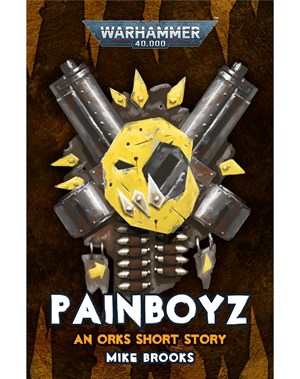
Painboyz, by Mike Brooks
Since his first story saw print in 2017’s Lords and Tyrants anthology, Brooks has been one of the modern Black Library’s more prolific writers with ten books and more than two dozen short stories to his name. Just in 2024 alone he had two novels published, Lelith Hesperax and Da Big Dakka, and for his latest short we’re returning to familiar (and hilarious) territory.
Painboyz follows Dok Drozfang and his retinue as they break into a Drukhari structure and have a look about. The “spikiez,” naturally, don’t take too kindly to the incursion, and quickly the erstwhile explorers learn they’re in over their heads.
Brooks is terrific at writing Orks, absolutely marinading the reader in their slang and patois and doing for Orks what Irvine Welsh did for Edinburgh heroin addicts.
He’s also absolutely hilarious. Jack Lemmon once notably observed that writing comedy is so much harder than writing drama, and I don’t doubt it for a moment. I’ve read other Ork stories that may be entertaining enough, but when it comes to the humor it’s either trying too hard or not hard enough. There’s a sweet spot there that Brooks has cheerfully mined, and Painboyz had me laughing aloud throughout.
A terrific opener for the collection.
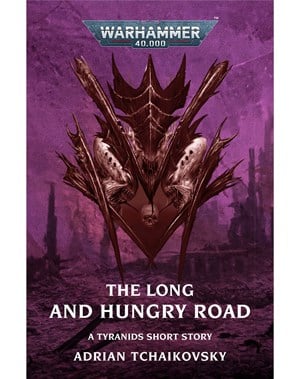
The Long and Hungry Road, by Adrian Tchaikovsky
Like Brooks and the Orks, Tchaikovsky returns to a familiar xenotype for his entry in the anthology. The Long and Hungry Road chillingly details the invasion of a Tyranid Hive Fleet and was first published digitally in 2023 as, fittingly enough, part of the Tyranid Invasion eShorts Week. This followed his 2022 Black Library novel debut, Day of Ascension.
Tchaikovsky has serious writing chops, with his Children of Time winning both a Hugo and a Nebula (for Best Series). There’s a particular horror to the idea of a planet being digested, one explored by Victoria Hayward to superb effect in last year’s Deathworlder. But Tchaikovsky’s short story imbues it not just with a morbid fascination as the planet’s end unfolds, but with a kind of doomed sorrow that makes it impossible to put down once you start.
Both The Long and Hungry Road and the newly-released Finest Hour by Sam Ryan are short stories that manage to get us emotionally engaged with a succession of characters with death all around them, but whereas the latter ends on a note of hope Tchaikovsky offers no such solace here:
The fleet is descending, extruding a thousand hungry mouths. And loyalty and resistance, cult devotion or faith in the human Imperium, courage, cowardice, hopes and dreams, it all tastes the same when it’s biomass.
Bon appétit.
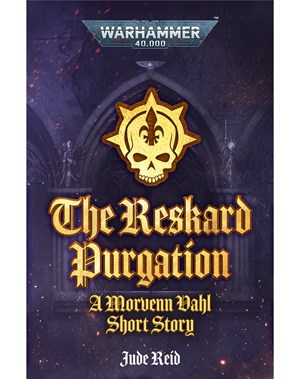
The Reskard Purgation, by Jude Reid
Last year’s Morvenn Vahl: Spear of Faith dropped us right in with Vahl as the Abbess Sanctorum of the Adeptus Sororitas (and a Lord of Terra), and this short shows us a Vahl before she took on that mantle- but only just!
Released as part of last year’s Black Library Celebration eShort Subscription, Reid spins a tale all too familiar to anyone who has ever rolled their eyes doing an escort quest in an MMO. Vahl and her Sisters must help a pontifex of the Ministerium recover a holy artefact from a city that is under siege from Chaos.
I very much enjoyed Spear of Faith, but I remember feeling a little off-put by just how insecure the character was. We all struggle from doubt sometimes, but I’d like to think that once you’ve made it to the pinnacle of your career you’re not spending a lot of time wondering if you’re the right person for the job. So when Vahl is offered the top job and tells them, in effect, “let me think about it,” I braced myself for a few paragraphs of anxious introspection (similar to what we saw in the brand-new Cold Vigil by John Flindall, which I recently reviewed as part of the latest Black Library Celebration eShort Subscription).
How wrong I was.
Instead, Reid leads us on an action-packed race against time with a climax that makes her reticence not only seem sensible, but relatable. Bands from CRASS to Ghost, Bad Religion to King Diamond have eagerly mined the disconnect between the words and the deeds of those of the cloth, and Reid taps from a rich vein here.
It’s a classic conundrum. Do you renounce a corrupt organization, or instead try and “change it from within.” Vahl ultimately makes her own path here, and it’s electric. This is a Vahl I’ll be eager to see more of!
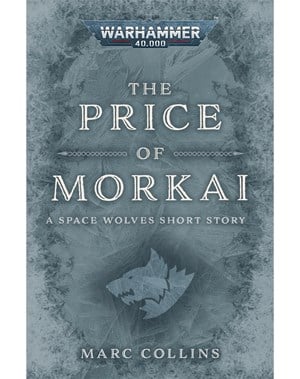
The Price of Morkai, by Marc Collins
I was reminded of the mix tape analogy as I read The Price of Morkai, as I think the anthology had its first miss here- and it’s no fault of the author.
Collins tells a tale of a Wolf Priest tending to a fallen brother slain on a hunt- but not just any hunt. As he does so, he reminisces about his own experiences facing the same trial and how he managed to make it through.
It’s a more contemplative piece that will appeal in particular to fans of the Space Wolves, but following on the heels of three more kinetic tales I feel Collins was done an editorial disservice here. (There is a place in the book where this one would have shone, and we’ll cover that in the conclusion.)
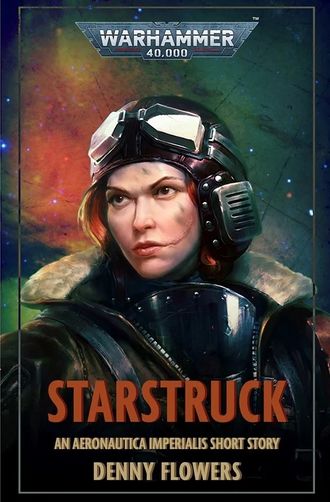
Starstruck, by Denny Flowers
And just like that, we’re back in the thick of the action. Flowers brings us a tale of fly-by-the-seat-of-your-pants derring-do from ace pilot Flight Commander Lucille von Shard. Flowers cut his teeth on the Necromunda setting before developing von Shard, heroine of Outgunned and Above and Beyond. Here she’s responsible for flying an inquisitorial agent to safety through an onrushing horde of winged Tyranids.
An agent who also happens to be her brother.
The familial connection allows for some humorous interplay between the two, but overall the focus is on the wisecracking von Shard and aerial action. A solid entry.
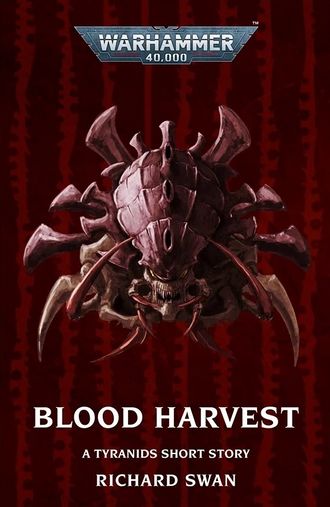
Blood Harvest, by Richard Swan
This is another look at resistance against a Tyranid invasion, but Swan offers a different approach than Tchaikovsky. Here, the heroes of the story are a group of ordinary people whose agricultural sector is overrun. Spared death as much through luck as skill they wind up in the company of a Tempestus Scion who tries to lead them to safety. But against the hungering horde, does such a place even exist?
Swan’s entry here is superb. It races along at a brisk clip, and its ordinary citizens are instantly relatable and the antithesis of the “bolter porn” staple that is Warhammer. A light sprinkle of dark humor makes this a joy to read.
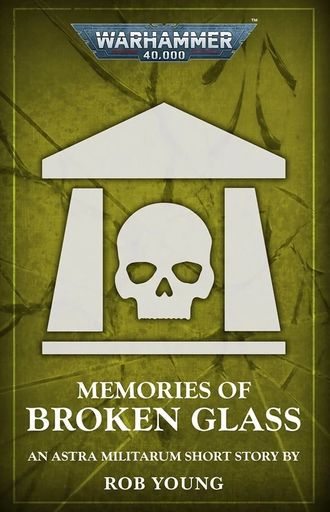
Memories of Broken Glass, by Rob Young
Like Flowers, Young’s story features one of his better-known creations, Astrea Militarum sniper Darya Nevic (of Longshot). As Nevic and her partner wait for a target to appear, she passes the time by recounting a flashback of an earlier two-man target hunt.
Young can write terrific action stories (see our recent review of his Leontus: Lord Solar here, for example), but the problem here is that action stories risk losing some of their immediacy when told through a flashback device. After all, you already know that at least one person made it out, lest there be no tale to tell.
As a result, the device works better in The Price of Morkai than it does here, as that story is already more contemplative in tone.
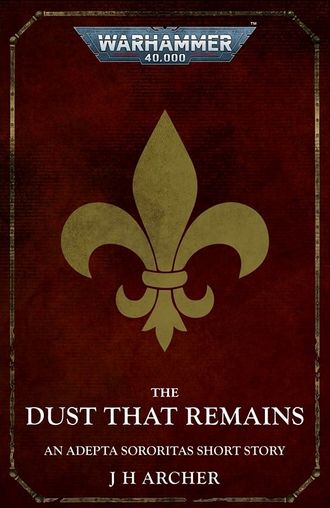
The Dust that Remains, by J H Archer
Another of the anthology’s stand-out entries, this one shifts gears from the struggle of war to the struggle to save lives in its wake. One hundred sickly Astra Militarum veterans are interned in a concentration camp following exposure to Chaos in a recent battle, and with only a hundred days available to save their lives a lone Sister Hospitaller must unravel the mystery surrounding what happened to them- and why.
It’s a testament to the incredible richness of the Warhammer worlds that all sorts of different types of tales can make their home there. Here we have a genuine medical mystery- the kind where an answered question only leads to more questions. Archer’s prior three stories for the Black Library were for the Warhammer Horror imprint, and while this is officially an Adeptas Sororitas tale he never strays far from that tone.
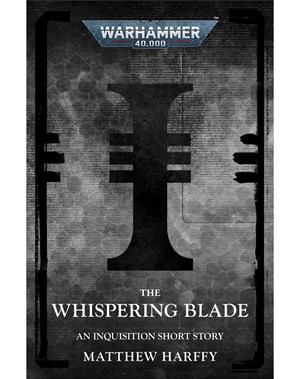
The Whispering Blade, by Matthew J Harffy
Janos is a fugitive in hiding, having deserted from the Astra Militarum with a curious dagger he looted from the corpse of a Chaos Space Marine. But you can only run so far for so long, when the Inquisition just a step behind you…
Admittedly, this one felt a bit uneven. Harffy leans a bit on telling over showing in some of the expository bits (“With each passing day, Janos’ grip on sanity grew weaker.”), but what I did like about this one is that the main character dove right into heresy with his eyes wide open. There was none of this, “hey, I found an item with supernatural powers, now let’s see how long I can lie to myself that it’s not something abominably awful” faffing about here.
This story, which debut digitally as part of the Warhammer 40,000 Week Subscription last May, was the first for Harffy in the Black Library. I look forward to seeing what he does next!
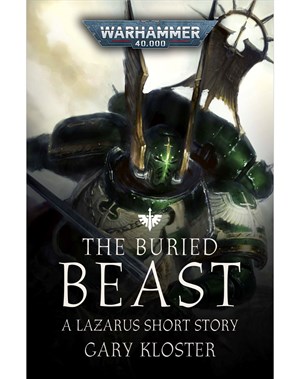
The Buried Beast, by Gary Kloster
While this story takes a bit of a different tone than many of the others, it treads some familiar ground with the story’s protagonist being an internally-conflicted superhuman whose Sturm und Drang of the spirit is abated through vanquishing an external threat.
Kloster- who was the author of last year’s Lazarus: Emnity’s Edge, gives another dose of Dark Angel derring-do as the Angels look to find one of their ships lost since the Heresy. The Planetary Governor knows where it is- and what it hides- but she’s not talking.
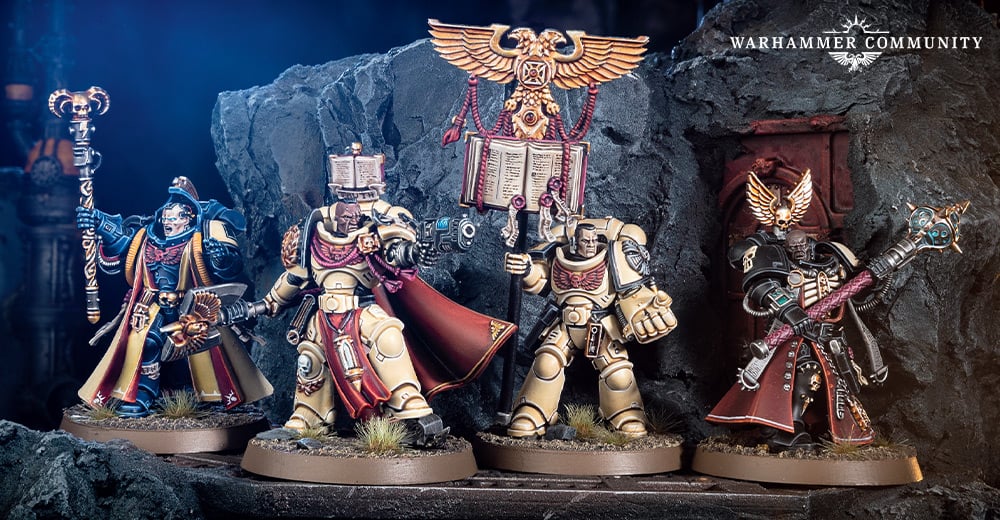
Tome Keepers: Legacy of Defiance, by Jon Flindall
No fancy Black Library header here, as this is the first time this story has been released in full. Previously, it had been serialized in White Dwarf issues 496-99.
The Tome Keepers are White Dwarf’s own homemade Space Marine Successor Chapter, and from time to time they’ve had their own short stories released in the pages of the magazine. Here, Blood of the Imperium collects the most recent one, Legacy of Defiance.
Flindall’s tale is one of the better of the anthology, gripping and suspenseful. The Tome Keepers are a fascinating Chapter, warrior-scholars so dedicated to the preservation of knowledge that they are themselves obsessive diarists. That’s the through-line that runs through this, the anthology’s final story.
As a relentless horde of Word Bearers assaults the Tome Bearers fortress, Epistolary Ushizar must race against time to unravel a mystery that’s woven through the diaries of his brothers before they are all put to the sword.
Putting It All Together
This is a terrific collection, with a little something for everyone through a nice variety of stories. Painboyz, The Long and Hungry Road, Blood Harvest, The Dust that Remains, and Legacy of Defiance are all top-tier and at the current Black Library rate of $4 per eShort story these alone are more than the entire book’s cover price of $18. In other words, you’ll absolutely get your money’s worth here and that’s even before you factor in the remaining six stories.
There’s no lemon in the lot, either. If I quibble on anything here it might be pacing, as I’d noted in the introduction. The book does The Price of Morkai a disservice by putting it so early in the collection, following the higher-octane tales from Brooks, Tchaikovsky, and Reid. Taking it out moves up Starstruck and Blood Harvest, with the flashback-centered Memories of Broken Glass as the perfect transitional piece.
Slot Price of Morkai in towards the end, right before the Dark Angels tale The Buried Beast and you bookend the slower, more contemplative stories with a run of action at the end. Voila, the perfect Warhammer mix tape!
But regardless how you slice it, this is excellent reading value for dollar. The Emperor provides!
